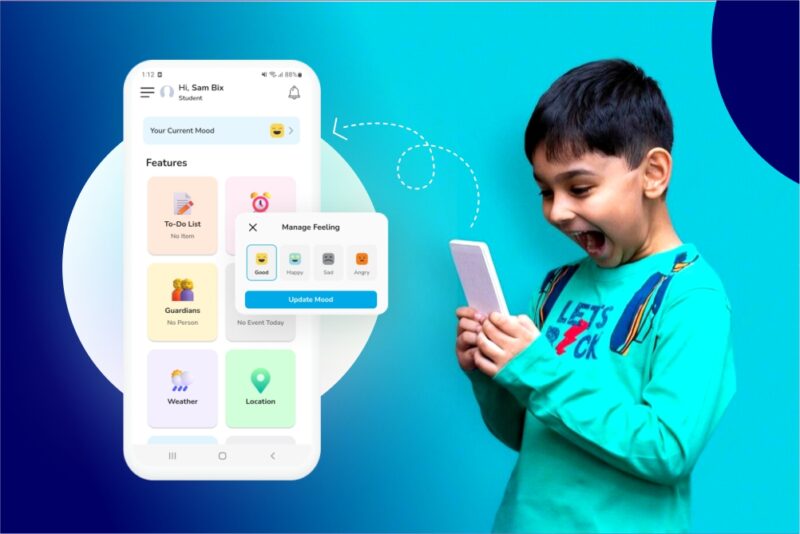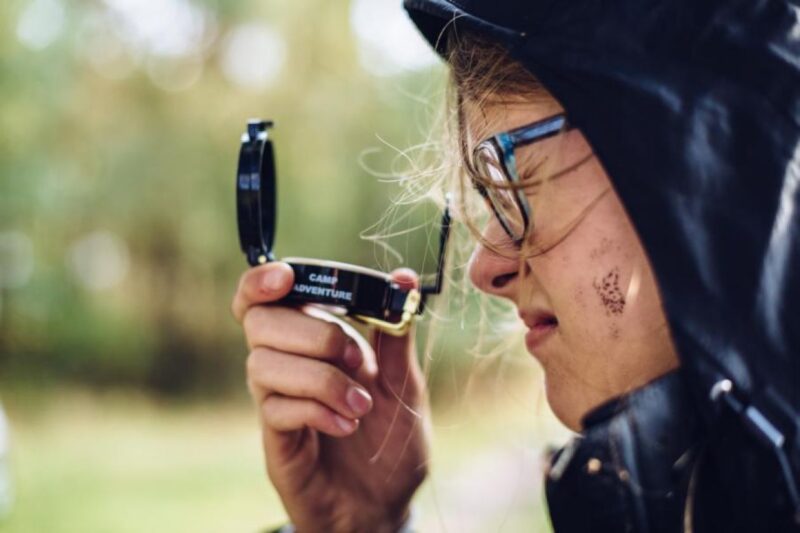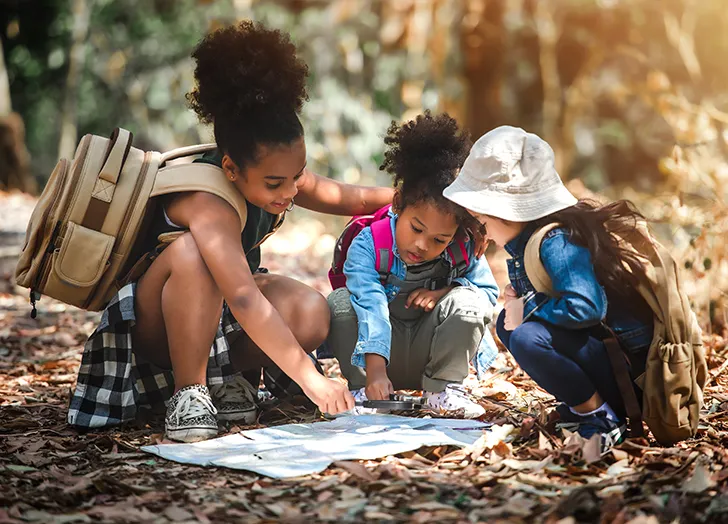Whether you’re pitching a tent in the Adirondacks or setting up camp in a state park closer to home, one thing’s certain: the outdoors is a powerful teacher. It builds resilience, independence, and confidence in kids. But while nature offers all that freedom, it also demands respect—and preparation.
That’s why more families are adding a GPS tracker for kids to their outdoor gear checklist. Just like a good fixed-blade knife or a firestarter, a child GPS device isn’t about fear—it’s about readiness.
Let’s dig into the reasons why it belongs in your pack, the latest safety data, and how to choose the right model for your next adventure.
A Look at the Numbers: Why Child Tracking Outdoors Makes Sense
Camping might feel safe, and most of the time, it is, but the stats tell us it’s smart to be proactive:
- According to the National Center for Missing and Exploited Children, an average of 2,300 children go missing in the U.S. every day—many while in public areas, including parks and campgrounds.
- The National Park Service reports hundreds of search and rescue (SAR) incidents involving minors each year—often due to kids wandering off trails, getting separated during hikes, or simply exploring a little too far.
- In a 2024 Outdoor Industry Association survey, 73% of parents said they’d feel more comfortable camping with their kids if they had location tracking tools.
Translation? Even one wrong turn on a wooded trail can turn a carefree afternoon into a high-stress situation. A GPS tracker gives you a safety net—and your kids the freedom to explore without constant hovering.
Top Reasons to Pack a GPS Tracker for Kids on Your Camping Trip
Here’s how a kid tracker camping device turns into a real-world tool—whether you’re camping off-grid or just out of sight from the trailhead.
1. Real-Time Tracking with App Alerts

Know where your kids are at all times—even when you’re collecting firewood or tending to the grill. GPS devices like the Spark Nano send instant updates to your phone.
2. Set Geofenced Zones Around Your Campsite
Create a virtual “safe zone” around camp. If your child steps outside of it, you get notified. It’s like setting a digital perimeter—especially helpful at large campgrounds or national parks.
3. SOS Buttons and Emergency Features
Most child GPS trackers include an easy-to-use panic button. If your child is lost, scared, or hurt, they can alert you with one press.
4. No Need for a Smartphone
Kids don’t need a phone to use these. The GPS device works independently and sends signals through cellular or satellite networks, depending on the model.
5. Built for the Outdoors
The best trackers are waterproof, shockproof, and rugged—able to survive rough trails, creek splashes, and even a fall from a treehouse-level perch.
How to Choose the Right Child GPS Device for Camping

Just like you wouldn’t trust a plastic knife in a survival situation, not all trackers are created equal. Here’s what to look for:
- Durability: Waterproof and rugged casing
- Battery Life: At least 3–5 days per charge
- Signal Reliability: 4G or satellite backup
- Stealthy Design: Compact enough to clip to a backpack or hide in a jacket
- Alerts & App Support: Easy-to-use mobile app with location history, instant alerts, and zone management
Recommended Model: The Spark Nano GPS Tracker offers all of the above and has been field-tested in both urban and rural settings. It’s small, discreet, and ideal for both short camping trips and extended family outings.
Bonus Tips: Teaching Kids Outdoor Safety
A GPS tracker works best when combined with basic outdoor awareness. Before any trip:
- Teach your kids to stay where they are if lost.
- Show them how to identify trail markers and landmarks.
- Give them a whistle (and teach them to blow it in bursts if they’re in trouble).
- Let them wear bright clothing for visibility.
- Show them how to use their GPS tracker and when to hit the SOS button.
The GPS tracker is your digital safety backup. Good habits are the primary plan.
Final Word: Preparedness is the Best Kind of Parenting

Camping is about freedom—roaming trails, chasing frogs, and staring up at stars. But that freedom is best enjoyed with a little bit of backup. A GPS tracker for kids doesn’t smother independence—it reinforces it with confidence, for both you and your child.
Just like packing your blade, compass, or fire-starting gear, adding a child GPS device to your family camping gear essentials means you’re ready for whatever nature throws your way.
Let your kids explore. You’ve got their six.
GPS Tracker for Kids – Camping FAQs
1. Will a GPS tracker for kids work if we go off-grid?
Most trackers use cellular networks, but some also use satellite or Wi-Fi fallback. For remote areas, consider pairing your tracker with a mobile hotspot or opt for a model with satellite coverage.
2. What if there’s no signal?
Trackers like the Spark Nano store location data even if temporarily offline, updating your app as soon as a signal returns.
3. Is a GPS tracker more reliable than walkie-talkies?
Yes, especially when out of range. Walkie-talkies are great for quick comms, but they don’t track location or send emergency alerts. A tracker adds a second layer of safety.
4. Can I track more than one child?
Yes. Most tracking apps allow you to monitor multiple devices at once, perfect for large families or group trips.
5. What’s the average battery life on a kid GPS tracker?
Typically 3–7 days, depending on how frequently it updates location. Many models also have battery-saving modes.
6. Can my child accidentally turn off the tracker?
Most rugged GPS trackers have tamper-resistant designs and can be set to alert you if powered down or removed.
7. Do I need a monthly subscription?
Yes, most devices require a cellular data plan—usually $15–$30/month—to enable live tracking and alerts.
8. Is the data secure?
Reputable brands like BrickHouse Security use encrypted servers and secure apps. Always avoid knockoff brands with vague privacy policies.
9. Is it uncomfortable for kids to wear?
Most trackers are small and lightweight—wristbands, clip-ons, or pocket-sized options that kids barely notice after a few minutes.
10. Can the tracker survive the elements?
Absolutely, if you choose a rugged model. Many are waterproof, dustproof, and built for active use in nature.
